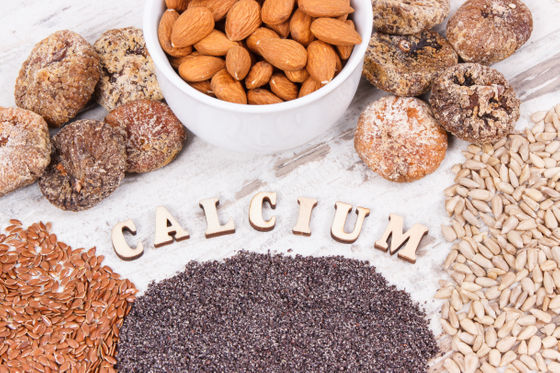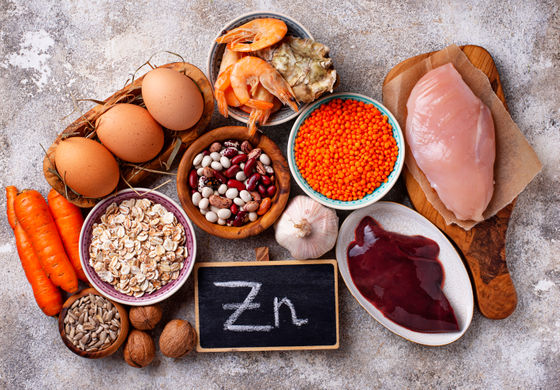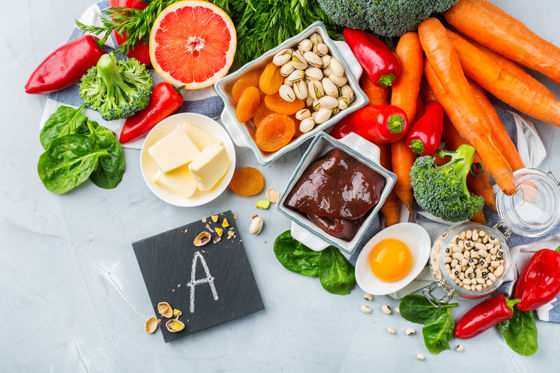How 'people who can't drink milk' get the nine nutrients of milk efficiently

Milk is rich in calcium, which is essential for strong bones, and proteins that are important for body building. However, it is
Don't drink milk? Here's how to get enough calcium and other nutrients
https://theconversation.com/dont-drink-milk-heres-how-to-get-enough-calcium-and-other-nutrients-165466
According to Clare Collins, a nutritionist at the University of Newcastle, Australia, there are many people who cannot drink milk for health reasons, as well as for those who are not good at milk flavor and animal welfare. A typical example is lactose intolerance, which makes you feel sick when you drink milk because you have little or no lactase enzyme that breaks down lactose in milk.
In addition, some people cannot drink milk due to milk allergy, which is said to affect about 0.5 to 3% of 1-year-old children, and milk is more likely to develop acne due to the action of whey protein contained in milk. Some people are avoiding.

However, milk is a food rich in nutrients essential for maintaining good health, such as calcium, protein, phosphorus, potassium, zinc, iodine, vitamin A, vitamin B2, and vitamin B12. So Collins summarized what foods to choose to get these nutrients without having to drink milk:
◆ Calcium
Calcium is found in dairy products such as cheese and yogurt, as well as in ingredients such as tofu, canned fish with bones, green and yellow vegetables, nuts, and seeds. In addition, some
The amount of calcium contained in milk is about 300 mg per 250 ml of milk, and if you want to take the same amount of calcium without drinking milk, you need to take the following amount of ingredients.
・ Yogurt 200g
・ 250 ml of calcium-fortified vegetable milk
・ Salmon can with bone 100g
・ Cotton tofu 100g
・ Almond 115g

Assuming that a glass of milk or a food containing calcium equivalent to it is '1
・ Children serve 1 to 3.5 a day depending on their age and gender.
・ Women aged 19 to 50 serve 2.5 times a day, and women aged 50 and over serve 4 times a day.
・ 2.5 serve a day for men aged 19-70, 3.5 serve for men aged 70 and over
According to Collins, calcium in foods other than dairy products is basically not very efficient in absorption, so be aware of eating more calcium-containing foods to keep your bones healthy without eating dairy products. It is necessary. For reference, the Ministry of Health, Labor and Welfare states that the daily calcium requirement for Japanese adults is 700 to 800 mg for men and 650 mg for women.
◆ Protein
In addition to being necessary for growth and physical repair, proteins are also materials for enzymes and antibodies. Foods rich in protein other than milk are meat, fish, eggs, nuts, seeds, legumes, dry beans, and tofu.

◆ Rin
Phosphorus is needed for bone and tooth formation, as well as for supporting growth, body repair, and producing energy. Phosphorus-rich ingredients are meat, fish and shellfish, nuts, seeds, whole grain grains, dry beans, and lentils.
◆ Potassium
Potassium activates cells and nerves and helps muscles work and regulate blood pressure. Ingredients rich in potassium include leafy vegetables such as spinach and kale, carrots, potatoes, sweet potatoes, pumpkins, tomatoes, cucumbers, zucchini, eggplants, legumes (especially pea), avocados, apples, oranges, and bananas.
◆ Zinc
Zinc is an essential mineral that supports the function of immunity and wound healing, and also maintains important functions of the human body such as taste and smell. Ingredients rich in zinc are lean meat, chicken, fish and shellfish (especially oysters), legumes, nuts, and whole grain grains.

◆ Iodine
Iodine is required for normal body development and brain development, and is also used in the thyroid gland to make thyroxine , a hormone required for growth and metabolism. Ingredients rich in iodine include fish and shellfish such as fish and shrimp, and salt with iodine added. According to the Ministry of Health, Labor and Welfare, it is also abundant in seaweeds such as kelp.
◆ Vitamin A
Vitamin A is important for the production of antibodies that are important for the body's immunity, for maintaining lung and intestinal health, and for maintaining eye vision. Ingredients rich in vitamin A are eggs, fatty fish, nuts and seeds. In addition, vitamin A can be synthesized from β-carotene, which is abundant in green and yellow vegetables, in the body.

◆ Vitamin B2
Vitamin B2, sometimes called riboflavin, is used to get energy from food and to maintain the health of mucous membranes and skin. Diets rich in vitamin B2 include whole grain bread, cereals, egg whites, leafy vegetables, mushrooms, and meat.
◆ Vitamin B12
Vitamin B12, sometimes called cobalamin, is a nutrient needed to synthesize red blood cells and DNA, myelin , a substance that protects nerves, and neurotransmitters necessary for brain activity. Ingredients rich in vitamin B12 are most animal foods such as meat and eggs, and vegetable milk fortified with vitamin B12.
Related Posts:
in Junk Food, Posted by log1l_ks







